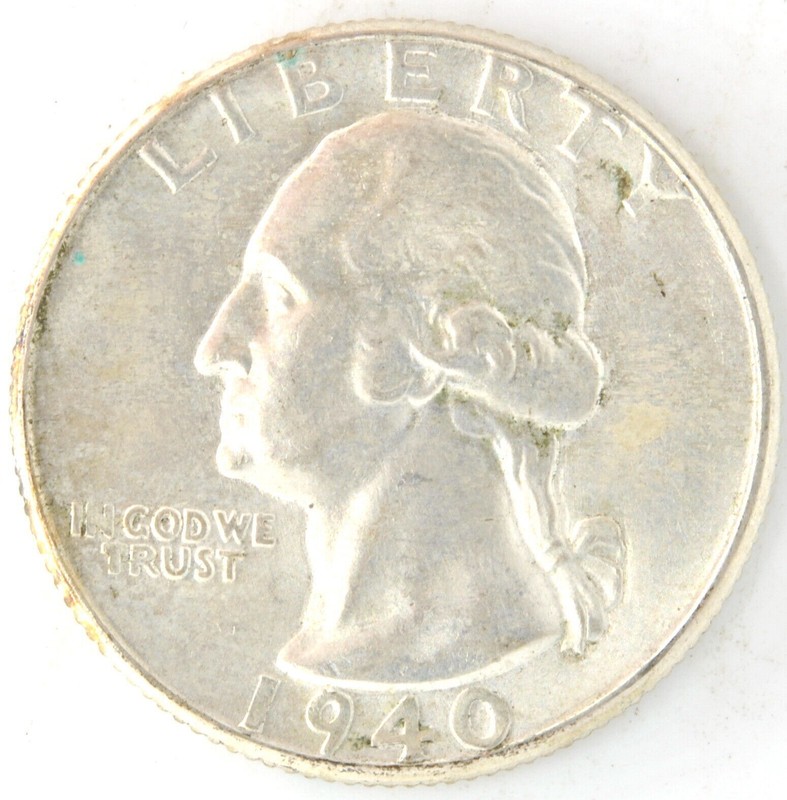The 1940 Washington Quarter is a significant coin for collectors and investors interested in U.S. silver coinage. Minted during a period of historical change, these quarters appeal to those fascinated by American numismatics and precious metals. This guide explores the design, mintage, notable varieties, values, and important facts to help you better understand the 1940 Washington Quarter and its place in the world of coin collecting.

Key Highlights
- Designed by John Flanagan, honoring George Washington.
- Composed of 90% silver, these coins have intrinsic precious metal value.
- Minted in Philadelphia (no mint mark), Denver (D), and San Francisco (S).
- Includes regular strikes; no proof coins issued in 1940.
- Some varieties and errors command premium prices at auction.
Who Designed the 1940 Washington Quarter?
The Washington Quarter was designed by sculptor John Flanagan. Flanagan’s portrait of George Washington on the obverse was chosen to honor the 200th anniversary of Washington’s birth in 1932. The design has been praised for its classic appearance and has remained largely unchanged on the obverse for many decades.
An interesting fact about the series is that Flanagan’s design was selected over a competing entry by Laura Gardin Fraser, whose work was also highly regarded. The Washington Quarter series is one of the longest-running coin series in U.S. history.
Design Details: Obverse and Reverse
The obverse features a left-facing bust of George Washington, inscribed with “LIBERTY,” the motto “IN GOD WE TRUST,” and the date “1940.” The reverse shows a heraldic eagle with outstretched wings perched atop a bundle of arrows, with two olive branches below, symbolizing both strength and peace. The legend “UNITED STATES OF AMERICA” and the denomination “QUARTER DOLLAR” encircle the top and bottom, respectively.
Which Mints Issued the 1940 Washington Quarter?
Three mints produced the 1940 Washington Quarter:
- Philadelphia Mint (no mint mark)
- Denver Mint (D mint mark)
- San Francisco Mint (S mint mark)
Mintage Numbers by Mint
The following table shows the official mintage numbers for each mint:
| Mint | Mintage | Mint Mark |
|---|---|---|
| Philadelphia | 35,704,000 | None |
| Denver | 2,797,600 | D |
| San Francisco | 8,244,000 | S |
Proof or Special Issues
No proof Washington Quarters were struck in 1940. The U.S. Mint did not resume proof coin production until 1950, so all 1940 quarters are business strikes intended for circulation.
Notable and Rare 1940 Washington Quarters
While the 1940 Washington Quarter is not considered a major rarity, certain high-grade examples and varieties are prized by collectors. The lowest mintage comes from the Denver Mint, making the 1940-D more desirable, especially in Mint State (MS) grades.
The most valuable 1940 Washington Quarters are those graded MS67 or higher by PCGS or NGC. At auction, superbly preserved 1940-D quarters in MS67+ have sold for over $13,000, making them the most valuable from this year.
Notable Error Coins and Varieties
While no major error types are widely known for the 1940 Washington Quarter, collectors occasionally encounter minor errors such as off-center strikes, clipped planchets, or double dies. These errors can add value, especially when authenticated and graded.
Below is a table of some errors that may be found on 1940 quarters and their potential value ranges, based on auction results:
| Error Type | Description | Mints | Estimated Value Range |
|---|---|---|---|
| Double Die Obverse | Doubling visible on date or letters | All | $100 – $500+ |
| Off-Center Strike | Design struck off-center, missing part of the image | All | $50 – $250+ |
| Clipped Planchet | Portion of coin missing due to incomplete blank | All | $40 – $150+ |
Note: Error coin values vary significantly based on the prominence and severity of the error and the coin’s condition.
Value Table by Mint and Condition
The following table provides value ranges for 1940 Washington Quarters by mint and condition, based on current market prices and recent auction results (values as of 2024). These are approximate ranges and can fluctuate with market demand and silver spot prices:
| Mint | Good (G-4) | Fine (F-12) | Extremely Fine (EF-40) | About Uncirculated (AU-50) | Mint State (MS-63) | Mint State (MS-65) | Superb Gem (MS-67+) |
|---|---|---|---|---|---|---|---|
| Philadelphia | $6 | $7 | $10 | $25 | $40 | $125 | $1,500+ |
| Denver (D) | $7 | $8 | $15 | $40 | $65 | $450 | $13,000+ |
| San Francisco (S) | $6 | $7 | $13 | $30 | $50 | $175 | $2,500+ |
Values listed are for raw (ungraded) coins in circulated grades and for coins authenticated and graded by PCGS or NGC in higher Mint State grades.
The Most Valuable 1940 Washington Quarter Sold at Auction
The record auction price for a 1940 Washington Quarter is held by a 1940-D graded MS67+ by PCGS, which sold for approximately $13,200 in a 2020 Heritage Auctions sale. This price reflects both the condition rarity and collector demand for high-grade examples.
Does the 1940 Washington Quarter Have Intrinsic Value?
Yes, the 1940 Washington Quarter is composed of 90% silver and 10% copper, which gives it intrinsic value based on its precious metal content. Each coin contains approximately 0.1808 troy ounces of pure silver. As of mid-2024, with silver around $28 per ounce, the melt value of each quarter is about $5.06. However, most collectible examples trade above melt value due to their numismatic interest.
Conclusion
The 1940 Washington Quarter remains popular among collectors and investors for its silver content, classic design, and historical significance. While most circulated examples are relatively common, high-grade coins and select errors can command significant premiums. Whether you are a seasoned collector or just starting out, understanding the values, varieties, and intrinsic worth of the 1940 Washington Quarter can help you make informed decisions in building your collection or investment portfolio.